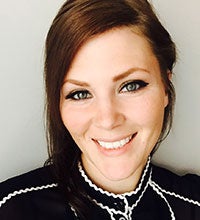What is a Hobby Farm
(You've got questions, we've got answers.)

Paul Martin is the Director of Education and Development for Myron Steves, one of the largest, most respected insurance wholesalers in the southern U.S.
Table of Contents
How do I know if I have a hobby farm or a commercial farm?
How many acres does a hobby farm have vs. a commercial farm?
Do I need different insurance on my hobby farm if I have goat yoga?
My hobby farm sells homemade soap and honey, is this considered a commercial farm exposure?
How do I know if I have a hobby farm or a commercial farm?
As a new farmer, I am not sure what exactly qualifies as a hobby farm vs. a regular commercial farm. Both can sell products, have crops and livestock and land, but do I insure for a hobby farm or commercial farm?
When you think of a hobby farm. think a smaller scale farm. The main difference between a hobby farm and a commercial farm is that a hobby farm is used for pleasure and your main income doesn't come from the farm. Instead, it may make some side money as a result of selling your products or livestock. The insurance differences can be many depending on the quantity of your crops, livestock, land, machinery, and the like. But the foundations of coverage are the same as a regular working farm. You'll need general liability, coverage for your farmhouse and any barns, and coverage for your land, crops, livestock, poultry and whatever else you do with your hobby farm. Discussing your farm's specifics with your independent insurance agent is the next step.
How many acres does a hobby farm have vs. a commercial farm?
Is there a difference in the number of acres that constitute a hobby farm vs. a commercial farm? If so, how do I insure my land, and are their different policies for hobby farmland vs. commercial farmland?
Typically, most commercial working farms are on more than 200 acres, with over half having several hundred acres. That being said, a hobby farm is normally a smaller scale farm and sits on fewer acres than that. If your farm is less than that 200 acres, it's safe to say it's probably a hobby farm. Land insurance is land insurance. Whether you have thousands of acres or just 10, you will need liability insurance that covers that exposure. Now, you may need more for more farmland because it's a larger area of land and more could go wrong. Your independent insurance agent will have some more answers.
Do I need different insurance on my hobby farm if I have goat yoga?
Is having the public on my hobby farm going to need more insurance? I have goats and am a yoga instructor, I'd like to bring my two passions together and offer goat yoga on my hobby farm. What coverage is needed?
You will need more liability insurance in the form of upping your underlying general liability as well as adding a commercial umbrella if you don't already have one. Any time you bring the public onto your hobby farm, there is room for error and injury, and you'll want to make sure you're policy responds accordingly. Your independent insurance agent can go over all the details and will probably have more questions about your goat yoga operations to make sure you have the correct coverage in place.
My hobby farm sells homemade soap and honey, is this considered a commercial farm exposure?
We are a small hobby farm but we are selling products like our homemade goat milk soap and honey to local farmers markets and online. Does this make us a commercial farm, and what insurance do we need for our products?
Selling products from your hobby farm doesn't make you a commercial farm, it just means you need to make sure you have the coverage in place for your hobby business. Remember, as long as your hobby farm isn't your main source of income, then it's still a hobby farm. You'll need coverage for your products before, during and after sale to be sure there are no gaps. You'll also want liability insurance in case one of your products injures someone, and the farmers market will want proof of coverage as well. Your independent insurance agent can set that all up for you and make sure all the details are accounted for.
